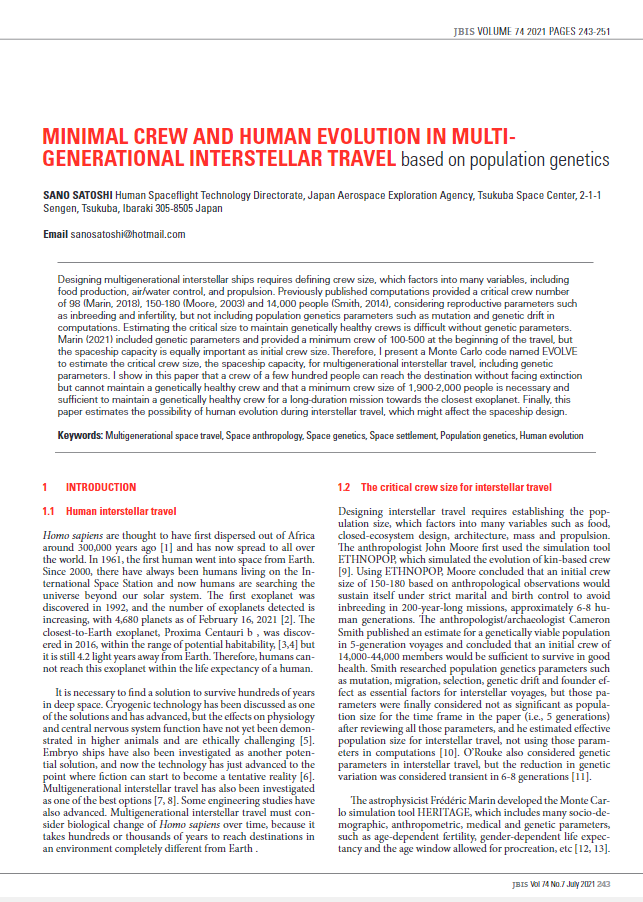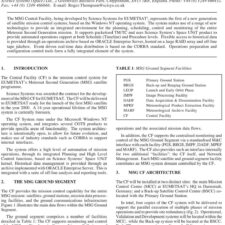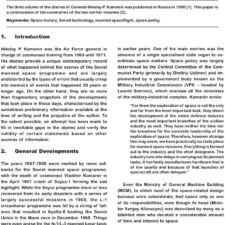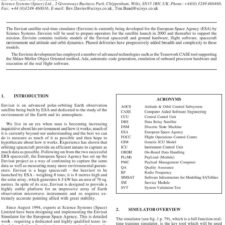Minimal Crew And Human Evolution In Multi-Generational Interstellar Travel Based On Population Genetics
£5.00
S. Santoshi. (2021), JBIS, 74, pp.243-251
Refcode: 2021.74.243
Abstract:
Homo sapiens are thought to have first dispersed out of Africa around 300,000 years ago [1] and has now spread to all over the world. In 1961, the first human went into space from Earth. Since 2000, there have always been humans living on the International Space Station and now humans are searching the universe beyond our solar system. The first exoplanet was discovered in 1992, and the number of exoplanets detected is increasing, with 4,680 planets as of February 16, 2021 [2]. The closest-to-Earth exoplanet, Proxima Centauri b , was discovered in 2016, within the range of potential habitability, [3,4] but it is still 4.2 light years away from Earth. Therefore, humans cannot reach this exoplanet within the life expectancy of a human.





